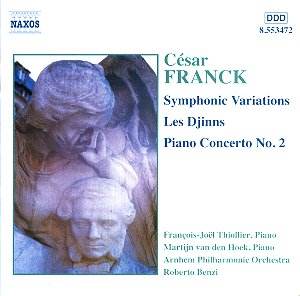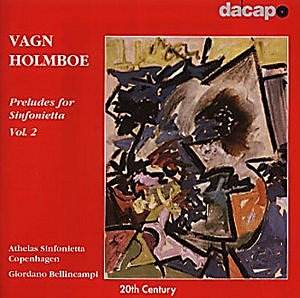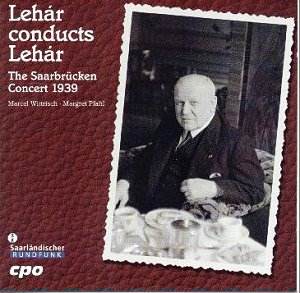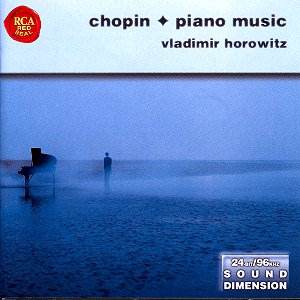 Composer: César Franck
Composer: César Franck
Works: Piano Concerto No. 2 in B minor, Symphonic Variations for piano and orchestra, Symphonic Poem Les Djinns (op. 54)
Performers: François-Joël Thiollier (piano), Martijn van den Hoek (piano), Arnhem Philharmonic Orchestra/Roberto Benzi
Recording: Recorded in the Musis Sacrum, Arnhem (June 1995 and July 1997)
Label: NAXOS
César Franck, often regarded as a pivotal figure in late Romantic music, has left an indelible mark on the concert repertoire, though his piano concertos are less frequently encountered. The current recording, featuring Franck’s Piano Concerto No. 2 in B minor alongside the Symphonic Variations and the Symphonic Poem Les Djinns, invites listeners to explore the less-traveled corners of his oeuvre. Remarkably, the Piano Concerto No. 2 was composed when Franck was just 13 years old, a fact that heightens the curiosity surrounding its thematic simplicity and stylistic influences of the time.
Franck’s youthful concerto is characterized by a blend of charm and naivety, reflecting the composer’s early influences, notably Chopin and Schubert. The Allegro maestoso opens with a confident piano flourish, although the orchestration at times feels unwieldy, particularly in the overly extended phrases that can lead to moments of tedium. The fluidity of the piano part, however, showcases Franck’s prodigious talent, even at such a young age. The performance by François-Joël Thiollier is notable for its technical precision, deftly navigating the virtuosic demands while maintaining an engaging lyricism. There are moments where the interplay with the orchestra, under Roberto Benzi’s direction, reveals a certain disjointedness, hinting at the work’s developmental immaturity.
The recording quality is commendable, capturing the richness of the orchestral palette while allowing the piano to shine brightly within the mix. The engineering achieves a balance that ensures clarity, particularly in the intricate passages of the Symphonic Variations, where the dialogue between the piano and orchestra is effectively highlighted. Thiollier’s interpretation of the Variations stands out, each section imbued with a distinct character that adds depth to the performance. The lush orchestration of Les Djinns, with its evocative textures, provides a fascinating contrast to the concerto, illustrating Franck’s burgeoning orchestral voice.
While this disc may not compete with the more illustrious recordings of Franck’s mature works, it offers valuable insights into his early compositional style. The thematic reliance on singular pitches, as noted by critics like Cecil Gray, indeed permeates the concerto, yet it also serves as a testament to Franck’s evolving musical language. The charm of the works presented here, particularly the Symphonic Variations, compensates for the limitations of the concerto, making this recording an intriguing exploration of Franck’s artistic journey.
This collection serves both as an educational resource and a delightful listening experience. The technical prowess displayed by the performers and the thoughtful orchestral accompaniment elevate these works beyond mere historical curiosity, inviting a reevaluation of Franck’s early output. While his later compositions may overshadow this concerto, its inclusion in the discography is justified, revealing a young composer on the cusp of artistic discovery. The recording is certainly a worthy addition to any collection, particularly for those seeking to deepen their understanding of Franck’s evolution as a composer.



